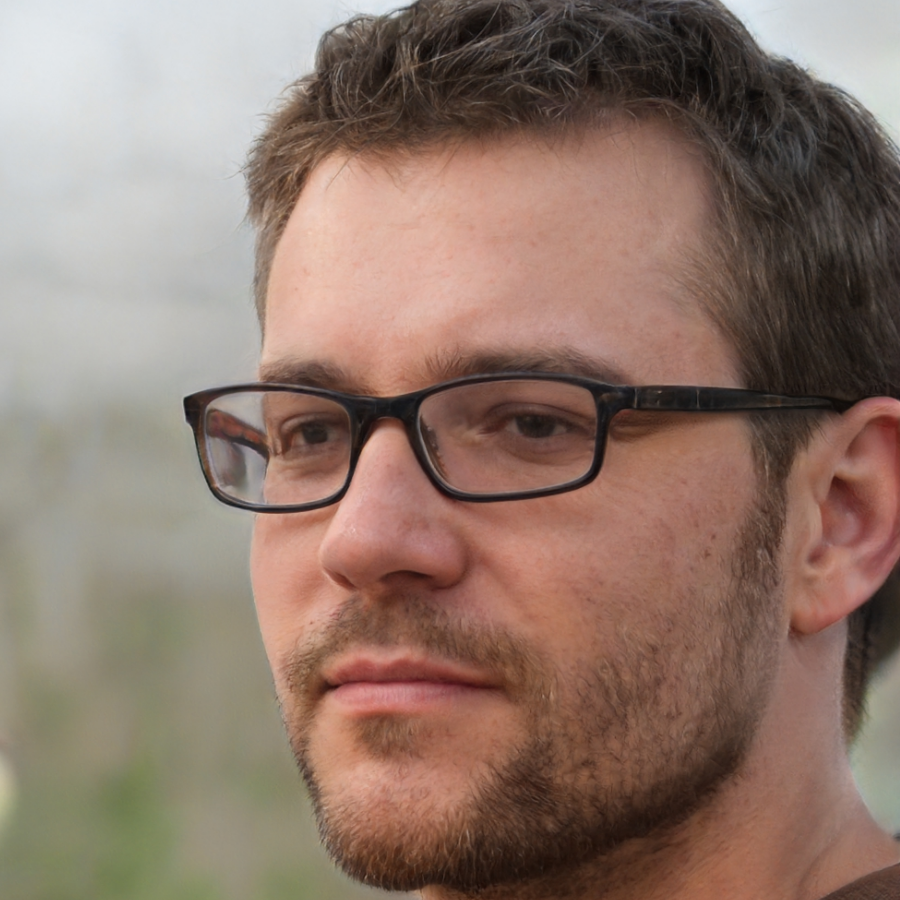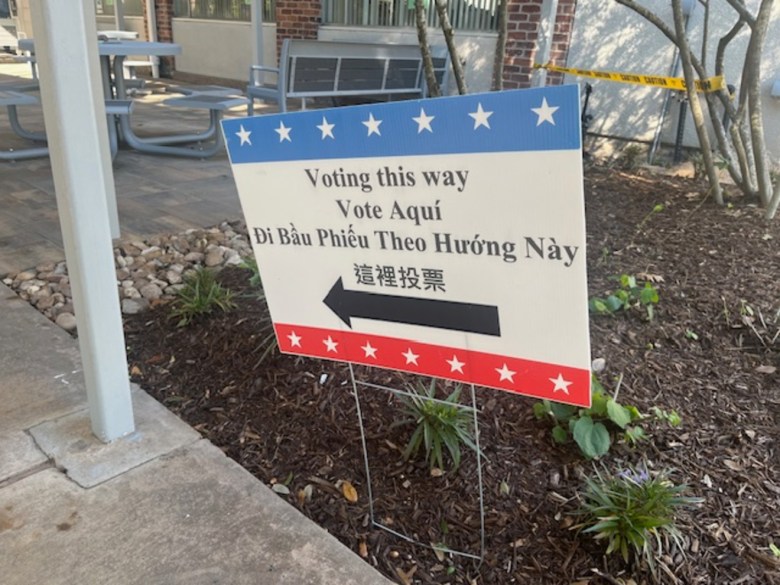Can Free Speech and Higher Education Co-Exist Now?
Should a college professor be able to share information about gender identity in a children’s literature class? Can an elementary school teacher offer an “unpopular opinion” about the Charlie Kirk murder on her personal Facebook page? Not without consequences, and not as long as Republican leaders are micromanaging public institutions, free speech advocates say.
Four people lost their jobs at Texas A&M University this month after a student objected to a discussion about a book involving a nonbinary child, falsely claiming such a conversation is not allowed under the Trump administration. The student took a recording of her classroom exchange with the professor to the university president, and a Republican lawmaker made it his mission to publicize the situation and rally support for the ouster of the A&M officials involved.
The termination of professor Melissa McCoul; the demotions of College of Arts and Sciences Dean Mark Zoran and English Department Head Emily Johansen; and the subsequent resignation of University President Mark Welsh III prompted a firestorm of controversy and debate about government overreach into higher education institutions.
Academics across the country have strong opinions on these topics, but many professors, including those at Houston universities, are uncomfortable talking about them publicly.
The incident in McCoul’s Texas A&M classroom was publicized by Texas Rep. Brian Harrison, R-Midlothian, and had members of the public calling for the professor’s firing, tagging Gov. Greg Abbott and other Republican lawmakers.
🚨CAUGHT ON TAPE: TEXAS A&M STUDENT KICKED OUT OF CLASS AFTER OBJECTING TO TRANSGENDER INDOCTRINATION… and A&M President defends “LGBTQ Studies.”
I’m referring @TAMU to the Trump Administration for investigation… and asking Gov @GregAbbott_TX to fire the A&M officials… pic.twitter.com/J6IWsfw62I
— Brian Harrison (@brianeharrison) September 8, 2025
Harrison did not respond to requests for comment on this story.
Days after McCoul lost her job, conservative Christian activist Charlie Kirk was murdered on the Utah Valley University campus, and as people weighed in on social media, a campaign was launched to get people fired from their jobs who spoke in a negative way about Kirk, who was an ally of President Donald Trump.
Governor Abbott called for the expulsion of a student at Texas State University who allegedly mocked Kirk’s death at a memorial. “Hey Texas State. This conduct is not accepted at our schools. Expel this student immediately. Mocking assassinations must have consequences,” Abbott wrote on X. The student was expelled later that day.
Texas Education Agency officials reported earlier this month that 280 complaints have been filed against teachers who commented on Kirk’s death on social media. While some of the posts were no-doubt inflammatory, suggesting that Kirk “got what he deserved,” others pointed out that they thought Kirk was a racist and posted clips that they presumably believed illustrated their point.
Randal Scamardo, a Texas A&M graduate who works as an assistant professor of Spanish at Lees-McRae College in North Carolina, said the situation at his alma mater is troubling. It appears that while it’s acceptable to laud Republican and Christian ideology in all public classrooms, differing opinions are shut down, he said.
“Since governments are expected to provide public education, it’s easier for them to create something that looks like education but is more akin to indoctrination,” Scamardo said. “People interested in doing that should be kept far away from the content of public education.”
Ironically, the indoctrination argument goes both ways. Harrison has argued that rogue educators must be fired for indoctrinating students into a “woke” ideology that includes Diversity, Equity and Inclusion practices and gender identity.
University of Houston lecturer Nancy Sims said on the Houston Matters radio show earlier this month that she devotes the first 15 minutes of her Women in Politics class to discussing the issues of the day, such as something President Trump said, action taken by the Legislature, or “any kind of policy that’s affecting women’s lives.”
“I think it’s very challenging to teach situations in the real world when the Legislature is trying to put parameters around you to not allow that,” Sims said on the radio show. “How can you discuss women’s rights without discussing the role of gender identity in women’s rights? You’re trying to put parameters on us that don’t allow us to discuss reality in the world that students will face when they leave campus.”
“It’s had a chilling effect on all public universities,” Sims told the Houston Press, declining to comment further.
Details are still unfolding in McCoul’s case, but accusations have been made that the topic of gender identity wasn’t relevant to a discussion on children’s literature.
According to reports, McCoul’s students were reading a novel called Jude Saves the World, featuring a 12-year-old protagonist who comes out as nonbinary. The professor shared a graphic of a “gender unicorn” to teach the differences between gender identity and sexuality.
According to the video released by Rep. Harrison, the student who later complained to the administration said, “I just have a question, because I’m not entirely sure this is legal to be teaching. Because, according to our President, there’s only two genders and he said that he would be freezing agencies’ funding programs that promote gender ideology. This also very much goes against, not only myself, but a lot of people’s religious beliefs.”
McCoul told the student she had the right to leave the class when concerns about the topic were raised.
No state or federal law prohibits instruction on race, gender, or sexual orientation in Texas universities, nor is there a university policy. An executive order issued by Trump in January states that U.S. government policy is to recognize two sexes and that federal funds could not be used to promote gender identity. However, legal experts have said that the order doesn’t prohibit a professor from teaching lessons on the topic.
McCoul’s children’s literature class, held over the summer, was canceled after the incident but the professor was back in the classroom teaching in the fall. She was not officially reprimanded for the incident until the video surfaced.
McCoul’s notice of termination, according to her attorney Amanda Reichek, “alleges that she was instructed on numerous occasions to change the course content to align with the catalog description and the course description that was originally submitted and approved, yet failed to do so.”
“However, Professor McCoul’s course content was entirely consistent with the catalog and course description, and she was never instructed to change her course content in any way, shape, or form,” Reichek said in an emailed statement. “In fact, Dr. McCoul taught this course and others like it for many years, successfully and without challenge. Instead, Dr. McCoul was fired in violation of her constitutional and contractual rights, and the academic freedom that was once the hallmark of Texas higher education.”
The professor appealed her termination and is “exploring further legal action,” Reichek said.
A tenured faculty member sent an anonymous letter last week to the student body at Texas A&M, noting that, for the second time in two years, a university president has stepped down “under public criticism from Texas political leaders and social media actors – accompanied by the resignation or removal of academic administrators and, in this most recent case, the firing of a faculty member in what appears to be a response to political pressure.”
M. Katherine Banks was the university president prior to Welsh. She retired in the wake of a controversy over the hiring of a Black female to lead A&M’s revitalized journalism program but received backlash from conservative groups that alleged a DEI hire.
“This follows years in which faculty have been lampooned in partisan media and by state officials as ‘woke’ activists, supposedly more concerned with ideology than with research and education,” the anonymous faculty member wrote. “We come to work knowing that serving your interests carries the risk of public ridicule, doxing, and, now it appears, loss of one’s job.”
“What makes this moment even more distressing is that outside agitators are trying to pit students against faculty, encouraging you to use the classroom as their weapon. I feel a long way from my first day standing in front of a classroom of Aggies, when students lined up to say howdy and introduce themselves. Now I wonder if they are recording.”
Texas A&M junior Ian Curtis, a journalism major and editor-in-chief of the student newspaper The Battalion, said last week that his peers were not particularly outraged about McCoul’s firing, but they were concerned that President Welsh was seemingly forced to resign amid the controversy.
Texas A&M University President Mark Welsh III, pictured with his wife Betty, resigned last week amid a controversy over a professor teaching gender identity in a children’s literature class.
Screenshot
The retired U.S. Air Force four-star general exited campus on September 19 with his wife Betty as students displayed signs that read, “American Hero & Our Hero. The Student Government Association rounded up dozens of current and former student leaders to sign a letter of support for Welsh and students protested for academic freedom.
“The professor situation, that gets into the politics of the day,” Curtis said. “People’s opinions are really divided on that on campus, but there was a lot of popular support for President Welsh. There’s an interesting dynamic here. It’s all the same scandal so it all gets thrown into one, but I think, among the student body, there’s a lot of support for Welsh because of everything he did for the university, which isn’t always the same as the reaction to the firing of the professor.”
Following the Course Description
The course description in McCoul’s publicly listed syllabus for the “Literature for Children” course states that the class will “tease out the boundaries of children’s literature,” including what counts as children’s literature and what differentiates writing for children from writing for adults, the Texas Tribune reported.
The syllabus lists Jude Saves the World as a course text and describes it as a children’s book by Ronnie Riley about a “nonbinary, bisexual 12-year-old who uses they/them pronouns.”
“Some of the material in this class might be controversial, and it is likely differing opinions will emerge,” the syllabus states. “You are certainly not required to agree with me (or your peers), or to adhere to any particular viewpoints. However, I do insist upon respectful, courteous dialogue, especially in matters where emotions run high.”
So it appears the students knew — or at least were provided information — on what the class would entail when they signed up for it.
Scamardo, the North Carolina professor, who earned his master’s degree and Ph.D. at the Universidad de Cadiz in Spain, said in general, course catalog descriptions are supposed to be four lines or less.
“We’re trying to make the courses look interesting,” he said. “We want students to register for these courses, and these descriptions have to be used semester after semester without having to be constantly altered. That is not very easy to do, but you also have a syllabus that gives more in-depth information. The students are supposed to read the syllabus at the beginning of the semester, when they still have time to drop the class and get their money back if they don’t like what they see planned out for the next 17 weeks.”
The professor added that students need to “lighten up, learn as much as they can, and go with the flow a little bit,” particularly when taking a political science course or a class that covers current events.
“Trust your college professors; they are the experts,” he said. “Take away what you like and disregard the rest. Keep the culture wars out of the classroom. You’re there to learn, not fight.”
Rice University political science professor Mark Jones said recently on the Houston Matters radio program that the course catalog references general topics but “it’s a rubric that you fill in throughout the course.”
“Especially in something like politics, you often are filling it in as the course evolves because you often try to use examples that come from current-day politics,” he said. “If you’re talking about democracy or elections, you’re probably not going to bring in some type of political philosophy that has nothing to do with politics, but it’s tough to say from the start exactly what you’re going to be covering in a course, especially for topics that are ever-changing, like politics.”
State Officials Also Get Involved in Secondary Education
As the so-called scandal at Texas A&M got a lot of attention this month, it became clear that secondary education classrooms are not immune to the watchful eye of the state government.
The Republican-controlled Texas Legislature passed a bill earlier this year requiring that the Ten Commandments be displayed in all public K-12 classrooms as long as the posters are donated. Two lawsuits have been filed to challenge the legislation and courts have ruled that such a measure is unconstitutional.
Texas Attorney General Ken Paxton celebrated a legal victory against Austin ISD on September 15, prohibiting the district from teaching critical race theory.
“Critical race theory is anti-American propaganda and in no world will I allow the woke indoctrination of Texas children,” Paxton said in an emailed statement. “While this order is an important step forward, I want to make clear to any school district considering any breach of this law: we will be watching.”
And in the Facebook post heard ‘round Texas, Abilene ISD Superintendent John Kuhn lamented that the “burden is heavy” for administrators in public education.
“Yesterday I spent hours at an update listening to the impacts on teachers and admins at public schools of bill after bill passed by our lege,” he wrote. “Did you know that one bill says teachers are going to be required to catalogue every book in their classrooms? Kindergarten teachers have hundreds of tiny books. With what time? When? Did you know that another bill says nurses can’t provide any health care whatsoever and counselors can’t provide any emotional support whatsoever without a written permission slip from parents?”
“Legislators have been convinced by political groups who hate public schools that everyone inside them are wicked, evil people,” Kuhn added.
Kuhn went on to say that Abilene teachers were referred to as “demons” by social media commenters who objected to the teaching of Extremely Loud and Incredibly Close in an honors English class. The book is about a child who lost his father in the 9/11 terrorist attacks and it contains a few curse words, Kuhn said.
“My teachers aren’t demons,” Kuhn wrote. “They may have made a mistake in assigning this book to 15-year-olds rather than 17-year olds and for that there are people online saying they need to be fired. Today, Extremely Loud and Incredibly Close is likely temporarily coming off our library shelves while we review our book challenge policies. Read the book. It’ll make you cry.”
He went on to say that “we can’t win in public ed anymore” and he was thinking about retiring when he is eligible in January.
“I’m sick of politicians playing divisive politics and leaving local public servants to clean up the mess,” Kuhn wrote. “Public schools are apolitical entities with the job of teaching kids to think critically and become awesome humans. We aren’t perfect. We have missteps because we are human organizations. But don’t call my teachers DEMONS while you cuss in the comments.”
“There is a political movement to pull the teeth of local officials at schools and on city councils and county commissioners courts so that all we have is centralized state leadership. So local yokels like yours truly have to be continually demonized and legislated into submission.”
Academic Freedom
The controversy at A&M has prompted free speech advocates to question whether McCoul’s firing not only was unfounded but endangers academic freedom in Texas.
Lindsie Rank, director of campus rights advocacy at the Foundation for Individual Rights and Expression, said public institutions can’t fire employees for exercising their First Amendment rights. Such occurrences are likely to prompt some educators to seek employment in other states, Rank said in a published report.
A recent survey conducted by the American Association of University Professors and the Texas Faculty Association found that 25 percent of Texas professors have applied for out-of-state jobs in the last two years. Over 60 percent said they would not recommend that colleagues or graduate students seek positions in the state. The chief complaint among those surveyed was the political climate.
Caro Achar, engagement coordinator for free speech at the ACLU of Texas, said free speech is the “cornerstone of our — and any — democracy, and it must apply to all Texans regardless of the viewpoints they express.”
“All public colleges and universities have a constitutional obligation to protect academic freedom on their campuses,” she said. “For decades, the Supreme Court has emphasized the importance of public universities maintaining learning environments where students and faculty are free to learn and explore new ideas. The censorship of certain topics and viewpoints destroys these environments and threatens the very foundation of our democracy.”
Curtis, the A&M junior, said he didn’t think students are concerned about what they can talk about in class, but they are concerned about the political overreach that’s preventing universities from handling their business internally.
“I’ve been in classes where professors have had to say, ‘This is a class where we discuss current events.’ I think it’s a fear, maybe a nervousness or anxiety, that extends to the students sometimes, but a lot of us … we’ve still got to pass our exams. Maybe the severity of what’s going on hasn’t hit the student body yet,” he said.
“I think the resignation of Welsh really put that into perspective for a lot of people,” he added. “It was like, this political thing that I wasn’t paying attention to extended to someone I’ve met. I shook his hand and he came to my awards events. That really shocked a lot of people into caring and looking into the situation.”
Senate Bill 17, requiring state universities to dismantle DEI offices and cease various programs, activities, and trainings that were traditionally conducted by them, became effective in January 2024. That got students’ attention because it affected some of their clubs and extracurricular activities, Curtis said.
Texas A&M is a diverse institution with more than 70,000 people at the main campus, but the perception, based on the visual displayed on televised football games, is a majority-white, conservative campus with a military-style Corps of Cadets and male “yell leaders” instead of cheerleaders, said Curtis, who grew up in College Station.
Texas A&M University is known for its Corps of Cadets and military traditions. The institution began accepting women in 1963.
Screenshot
“There’s a community for everyone; there are representative bodies for queer students, every ethnic group or international student,” he said. “The campus and the school itself is a community and there’s something for everyone here.”
Former A&M President Welsh at first said he wouldn’t fire McCoul but then reversed course and did so, saying at the time, “This isn’t about academic freedom; it’s about academic responsibility.”
But some students believe that academic freedom is under attack, Curtis said, pointing to a report The Battalion did earlier this year on the conservative influence that far-right publication Texas Scorecard has on A&M’s policies and personnel discussions.
“Virtually every article they publish is not fully factual, sometimes not even close to factual,” Welsh is quoted saying in the article. “They have never printed a retraction when we provided them with the facts.”
And yet members of the A&M Board of Regents repeatedly pointed to published reports in the Scorecard to justify policy-making decisions, according to The Battalion.
Curtis said students are aware of the political pressure on university administrators but they typically don’t get involved until it affects their daily lives. He said he didn’t think anything would change among students other than reacting to changes at the institutional level.
“I think you’re going to see a shift in how other people conduct themselves more than how students conduct themselves,” he said. “I think there will be a domino effect from that. I think the issue is that you have people on social media seeing one moment out of context, and it being shared by a politician, and then you have people in Austin with their eyes on it. You have university systems that feel like they need to make changes based on that.”
“It’s reactionary. An uneducated opinion is being shared and it’s leading to all this change,” he added. “I think that frustrates a lot of students.”

Reign Bowers is an outdoor enthusiast, adventure seeker, and storyteller passionate about exploring nature’s wonders. As the creator of SuperheroineLinks.com, Reign shares inspiring stories, practical tips, and expert insights to empower others—especially women—to embrace the great outdoors with confidence.







Post Comment